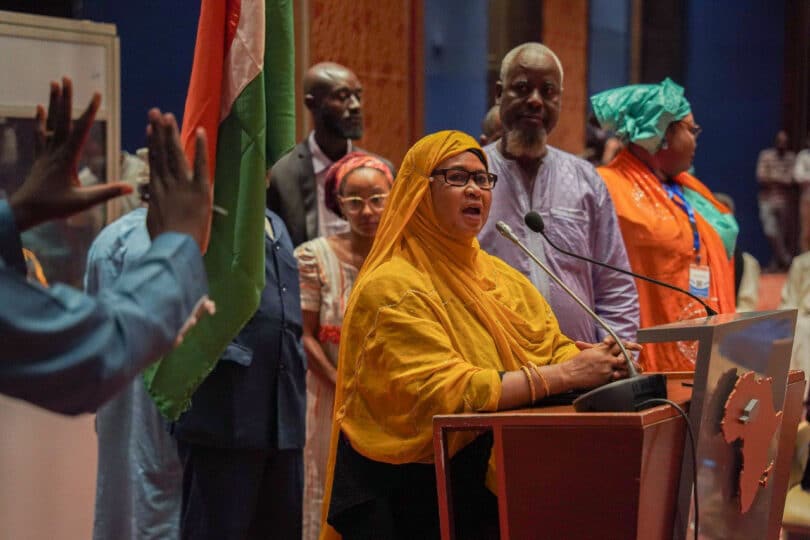Dear friends,
Greetings from the desk of Tricontinental: Institute for Social Research.
A cascade of anti-French sentiment continues to sweep across the belt of the Sahel in Africa: joining Burkina Faso, Mali, and Niger, Chad and Senegal demanded in November that the French government withdraw its military from their territories. From the western border of Sudan to the Atlantic Ocean, French armed forces, which have been in the area since 1659, will no longer have a base. The statement by the foreign minister of Chad, Abderaman Koulamallah, is exemplary: ‘France… must now also consider that Chad has grown up, matured, and that Chad is a sovereign state that is very jealous of its sovereignty’. The key term here is ‘sovereignty’. What Koulamallah signals is that the countries of the Sahel are no longer satisfied by the symbolic independence—or flag independence—critiqued by Frantz Fanon in The Wretched of the Earth (1961), what they want is genuine sovereignty.
Fanon’s book was published the year after the countries in the Sahel won their formal independence from France in 1960. But this ‘independence’ was shallow. It meant that these countries, from Senegal to Chad, would remain part of the Communauté franco-africaine (French-African Community, CFA) and that they would allow for the use of the CFA franc, anchored in France, as their currency, that they would allow French companies to remain in control of their economies, and that they would allow French troops to be based on their territory. In September 1958, a constitutional referendum was held across the French colonies of the Sahel, with only Guinea voting against the proposition for ‘independence’ from direct French colonial rule under the French neocolonial CFA. Forces that campaigned against joining the CFA and winning actual independence faced repression from Charles de Gaulle’s political and military establishment.
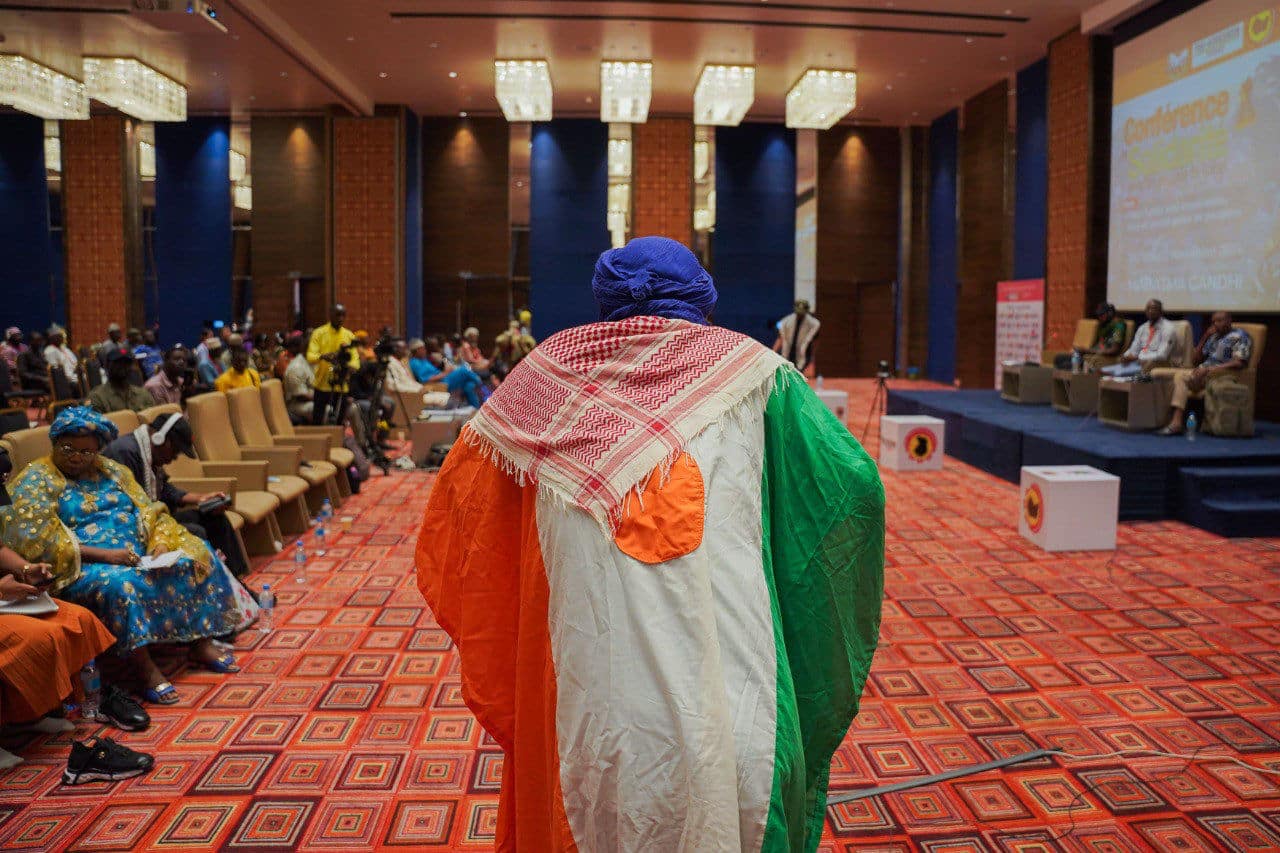
Conference in Solidarity with the Peoples of the Sahel, Niamey, Niger. (Photograph by Pedro Stropasolas for Peoples Dispatch)
Djibo Bakary (1922—1998), the leader of the Union of Popular Forces for Democracy and Progress-Sawaba (Liberation) party and president of Niger’s Government Council, articulated the mood of the people in the late 1950s with his slogan, l’indépendance nationale d’abord, le reste ensuite (‘national independence first, the rest afterwards’). Bakary was invested in the idea of sawki (‘deliverance’), which meant not only relief from French colonialism but abolition of poverty and distress. In May 1958, the General Union of Workers of Black Africa (UGTAN) met in Cotonou (Benin) and called for the total end of the French colonial system. That July, at an inter-territorial conference in Cotonou, Bakary catapulted this demand into wider public discourse in Niger and across the Sahel. At the Sawaba party congress the following month, in August, Adamou Sékou reflected the sensibility against the French desire for colonial rule by other means: ‘this sense of our human dignity that too many of our metropolitan friends have difficulty admitting; a dignity that we can never renounce because the black Africans want to be themselves free first and foremost’.
If people are not allowed to be ‘themselves’ or free, Fanon wrote around the same time, then they will rebel. ‘The masses begin to sulk’, he wrote in The Wretched of the Earth. ‘They turn away from this nation in which they have been given no place and begin to lose interest in it’. The false nationalists, or flag nationalists, Fanon wrote, ‘mobilise the people with slogans of independence, and for the rest leave it to future events’. Six decades later, we are now in the midst of these ‘future events’.
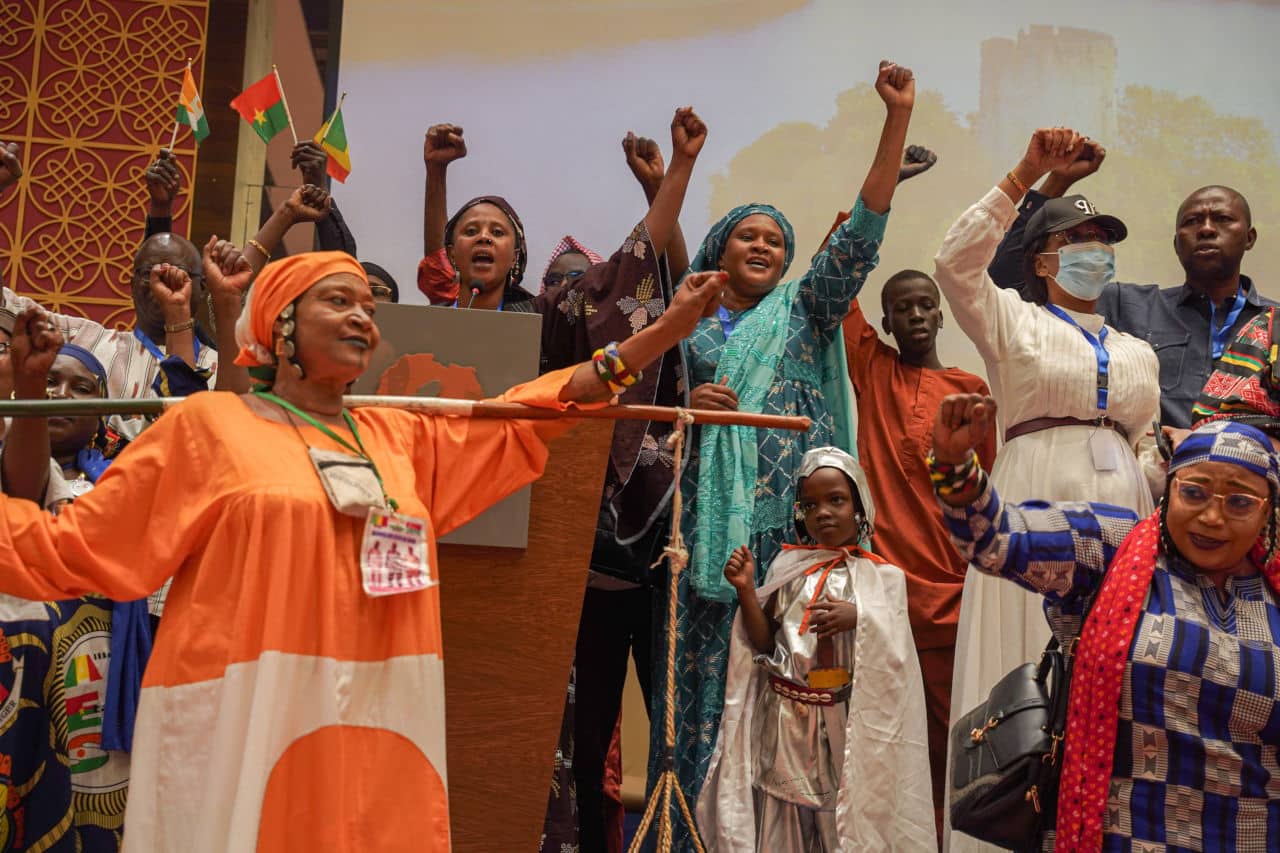
Conference in Solidarity with the Peoples of the Sahel, Niamey, Niger. (Photograph by Pedro Stropasolas for Peoples Dispatch)
From 19 to 21 November, hundreds of people from around the continent and the world gathered in Niamey, Niger, for the Conference in Solidarity with the Peoples of the Sahel. This was the first such conference since the military coups overthrew the French affiliated governments in Burkina Faso, Mali, and Niger, and since the establishment in September 2023 of the Alliance of Sahel States (AES). The conference, held at Niamey’s Mahatma Gandhi International Conference Centre, was coordinated by the West African Peoples Organisation (WAPO), Pan-Africanism Today, and the International Peoples’ Assembly (IPA). Speakers at the conference included representatives of the National Council for the Safeguard of the Homeland (CNSP), people’s organisations from the AES as well as other countries in the Sahel, West Africa and the continent, and political leaders from Latin America to Asia. The three days culminated in the passage of the Niamey Declaration, whose last section bears quoting in full:
We commend the governments emerging from recent coups for adopting patriotic measures to reclaim political and economic sovereignty over their territories and natural resources. These measures include terminating neocolonial agreements, demanding the withdrawal of French, American, and other foreign forces, and undertaking ambitious plans for sovereign development.
We are particularly encouraged by these countries’ formation of the Alliance of Sahel States. This move revitalises the legacy of Pan-African leaders and represents a concrete step toward true independence and Pan-African unity.
These governments currently enjoy widespread support from their citizens, who drive and rally around these revolutionary actions. This unity is crucial for achieving democratic and patriotic ideals and is an aspirational development model for other African nations.
In conclusion, while much remains to be done toward the complete liberation of the Sahel states, we are optimistic that these governments, by continuing to listen to their people, will fulfil their objectives for total national liberation and contribute to the broader goal of a unified and free Africa.
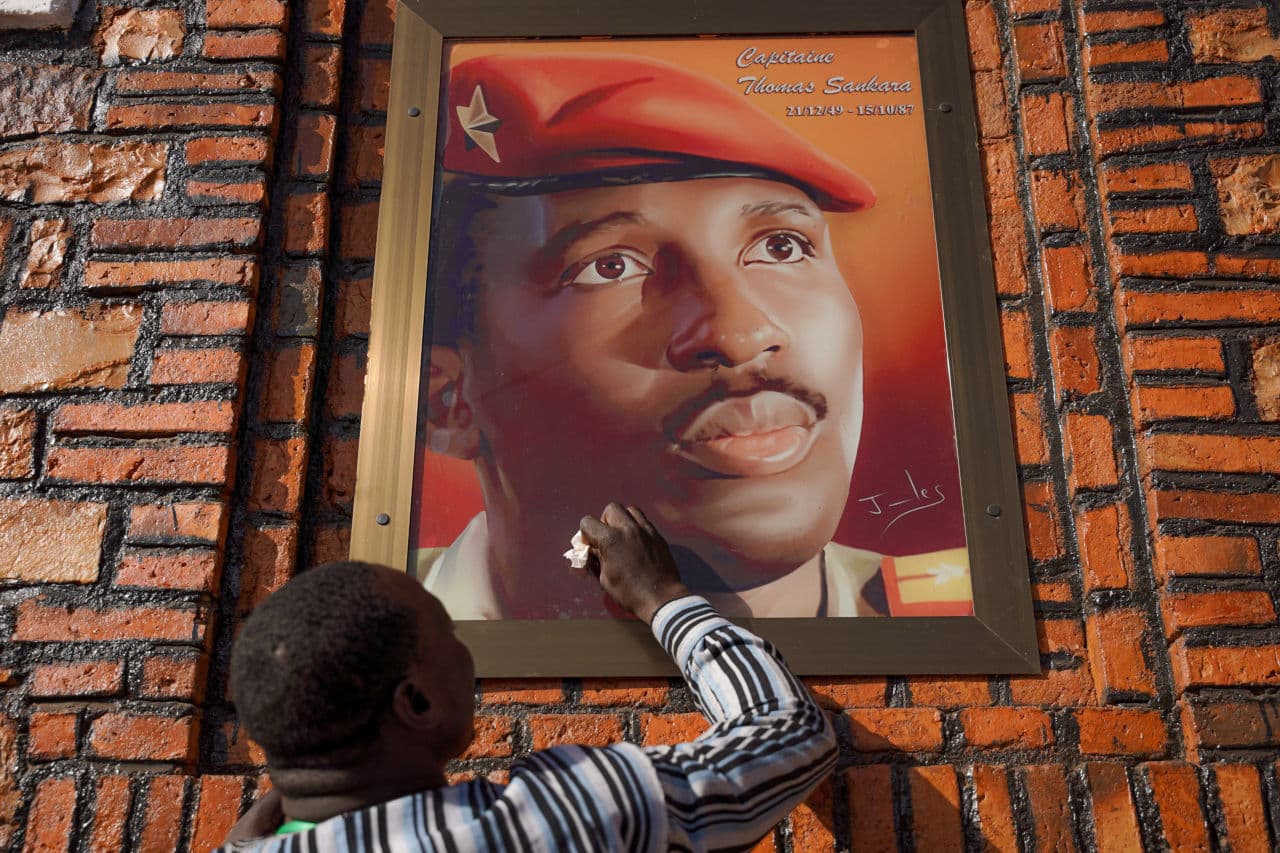
Conference in Solidarity with the Peoples of the Sahel, Niamey, Niger. (Photograph by Pedro Stropasolas for Peoples Dispatch)
In August 2022, fifteen social and political organisations in Niger joined together to form the M62 Movement (Sacred Union for the Safeguard of the Sovereignty and Dignity of the People, M62). They released a statement against the presence of the French military in Niger, which had been ‘driven out of Mali and [are] illegally present on our territory’, and called for their ‘immediate departure’. The movement asked ‘all citizens to form citizens’ committees for dignity’ across the country. One of the movement’s leaders, Abdoulaye Seydou, heads the Pan-African Network for Peace, Democracy, and Development, whose office is named after the Burkinabe leader Thomas Sankara (1949—1987). The office itself has a picture of Fanon with the quote, ‘Each generation must, out of relative obscurity, discover its mission, fulfil it, or betray it’. Seydou’s general political outlook at that time was that the misery of the people of Niger could not be overcome within the context of French neocolonial control. That is why the M62 began rolling protests against the French military presence and held a nightly cultural festival in Niamey to deepen the message for deliverance. These protests galvanised the military to move against the neocolonial administration of Mohamed Bazoum and install a government lead by General Abdourahamane Tchiani. This coup, like those in Burkina Faso and Mali, was widely celebrated in the country for having opened the door to what Fanon had called ‘future events’.
At the solidarity conference in November, Souleymane Falmata Taya, a leader of the M62 movement, said that the struggle in Niger was not being led by the military but by the youth and women. ‘All we want is to be treated as human beings’, she said. A few months earlier, she had said that the people of Niger appreciate the strides made by the government of Prime Minister Ali Lamine Zeine, a former minister of finance, but that the people must be vigilant and the government must be transparent.
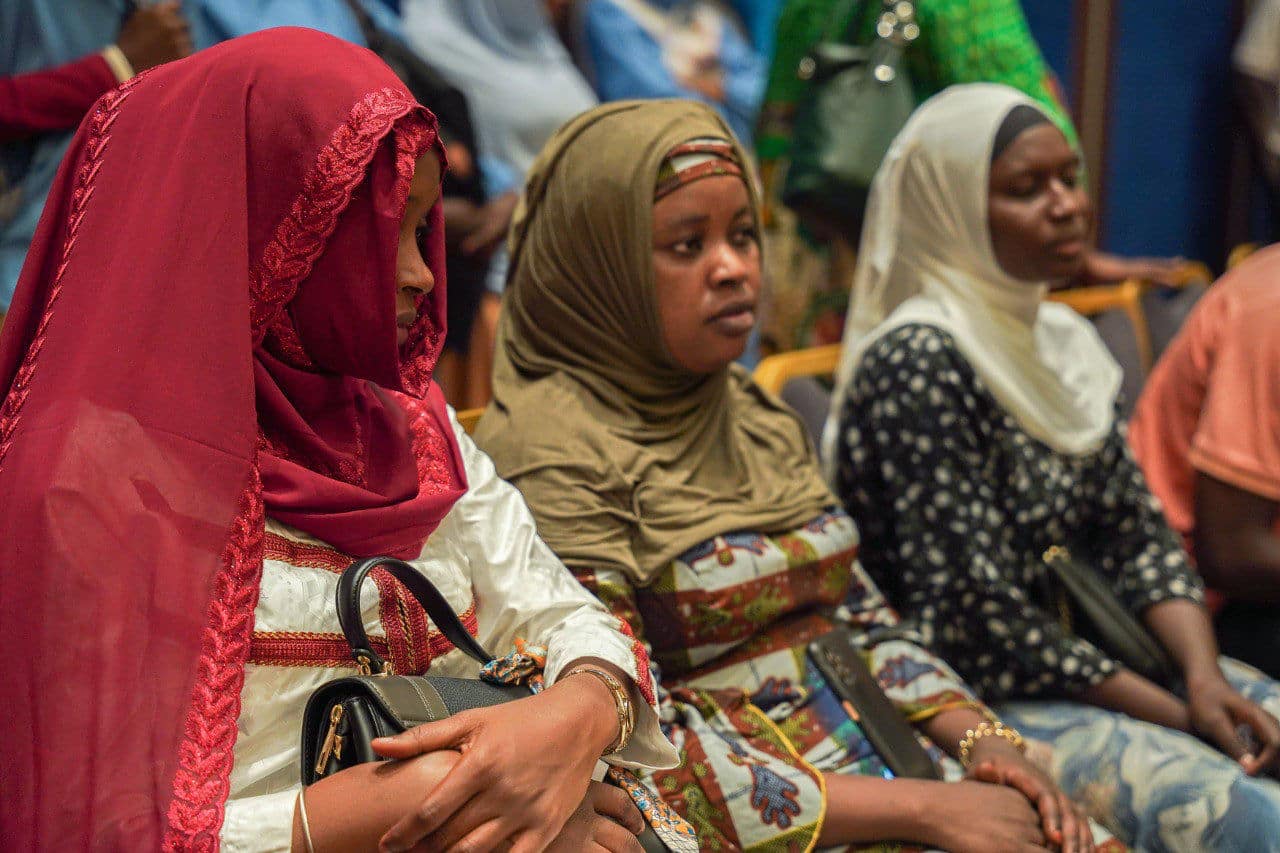
Conference in Solidarity with the Peoples of the Sahel, Niamey, Niger. (Photograph by Pedro Stropasolas for Peoples Dispatch)
In 1991, former left-wing student leaders formed the Revolutionary Organisation for New Democracy-Tarmouwa (‘star’ in Hausa) or ORDN-Tarmouwa. This political organisation has played a foundational role in the mass movements against the French neocolonial structure and the parasitic governments that enabled it. Mamane Sani Adamou, one of the founders of the ORDN-Tarmouwa, called the recent period a second awakening for the people of Niger. ‘We are living through a patriotic revolution, a struggle for a second independence’. The people of Niger need sovereignty over their monetary system, over their food production, and over their overall economic agenda. ‘We need to adopt a new strategy’, he said. ‘The difference today is that we are deciding on our own. We no longer get instructions from Paris. We take instructions from home’.
The fundamental word in the Sahel is sovereignty. If a dependent country such as Senegal or Niger fights for sovereignty, and if it tries to deepen its sovereignty, it will certainly need to dislodge the tentacles of the neocolonial structure. There can be no sovereignty with the neocolonial structure in place. At this point, imperialist intervention is inevitable. How the forces for sovereignty will deal with a sharp imperialist attack is to be seen. When the French tried to intervene against these popular military coups through the military forces of the Economic Community of West African States (ECOWAS) in 2023, this threat only accelerated the integration of Burkina Faso, Mali, and Niger into the AES. The first test was successfully overcome by the popular coup governments, who refused to surrender to an imperialist intervention. To escalate the demand for sovereignty through a struggle with the imperialist system, as is demanded by ORDN-Tarmouwa and M62, will necessarily force these governments to deepen their commitment to solving social problems.
Fanon’s ‘future events’ are now our present. So is the expectation of Sawaba’s Adamou Sékou, who said in 1958, ‘From Téra to N’guigmi, the refrain of independence must have its echoes in every village’. Independence, he said, ‘is the end of backward colonialism, with its slave-trading economy, its dispossessions, its social injustices. It is the end of the calculation of values based on the pigmentation of men. It is the end of prejudices. It is the resurrection of our people’.
Warmly,
Vijay

